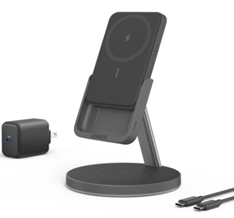By Dominic Norton, Sales Director, Spitfire Network Services Limited
Over the last couple of years, organisations of all shapes and sizes have had to grapple with the challenges that COVID inflicted on us all.
Firms in the financial services sector are no different.
Technology became both a headache but also a solution as firms dealt with lockdown and the demands of a largely working-from-home workforce. All of a sudden employees needed to access resources remotely, outside of the normal office network. They were increasingly using different smart devices to get work done (not the office PC) and there was a huge demand for video conferencing solutions. Technology provided solutions and working life returned to normal(ish).
But there is another technology challenge looming on the horizon, one that your organisation needs to think about now – the analogue and ISDN Switch Off, 2025.
What is this ‘Switch-Off’?
We are talking about the end of the legacy analogue and ISDN telephone network here in the UK. Hardly surprising when you consider that some of the UK’s copper telephone network is well over 140-years old now. This analogue network is reaching the end of its useful life. So with this in mind, Openreach is set to switch off analogue PSTN and ISDN telephone services in 2025. It is likely that many firms are still using analogue telephone services that rely upon copper cable. For example, the telephone handsets (and fax machines, if still being used) in your firm’s office will be connected to your private branch exchange (PBX) using wall sockets. Copper cables then run from your firm’s office to the local exchange, with calls thereafter routed to their terminal destination via the Public Switched Telephone Network (PSTN).
Your business needs to understand how the analogue switch off will impact your day-to-day business and what arrangements you need to make. Many firms will be trying to understand exactly how they can get the transition process started that ultimately helps them avoid disruption to their business. And there are certainly things that you should be considering.

Move to VoIP
If your company still uses an analogue or ISDN telephone number service, then you will need to move to VoIP (Voice over Internet Protocol) and subscribe to a SIP service. You could choose a Cloud PBX for example but check first to see if your existing phone system is able to use SIP trunks as another option. By using VoIP, all of your telephone calls will now run over IP instead of the old analogue network. This can present the challenge of call quality as IP telephony can be prone to poor service. By choosing carefully when looking at options for your data circuit, you can avoid any call quality issues. Selecting the right data circuit should ensure consistently good quality calls which is vitally important for any firm, especially if fewer face-to-face meetings take place with clients.
What about Broadband?
Choosing a broadband service shouldn’t present any problems. If you can access ‘full fibre’ or Fibre to the Premises (FTTP) then this is the best broadband option. If FTTP is not available for your business, then you can investigate SOGEA (Single Order Generic Ethernet Access). This effectively allows providers to order broadband without a phone line, so your business gets a FTTC Fibre Broadband product but without the telephone line capability. It conveniently allows your firm to pay a single monthly rental for internet access.
Devices and Power Sockets
If your organisation currently uses any other devices such as PDQ card machines for example, then they might also be using analogue lines. Our advice is to speak to the device manufacturer for additional information. It might be a case of your firm upgrading any such devices to be able to connect to an IP network (or a 4G SIM). If your firm has security alarm lines installed, then consider a solution such as Essential IP by Openreach which will allow your alarm system to communicate over IP. It could end up being a costly oversight but don’t forget to check your power sockets. IP services require power for each single device unlike the old-fashioned analogue systems that were powered directly from the telephone line. Get enough power sockets for your needs.
Keep Voice Quality in mind, always
Poor quality communication is frustrating for everybody. Your people won’t thank you for it and the firm’s customers will be put off. Make sure that you work with a service provider that really has in-depth knowledge of VoIP (handsets through to networks). Ultimately, call quality on VoIP will be decided by the condition of your broadband line and to what degree it performs. For example, if your firm suffers from slow and inconsistent internet speeds or numerous dropouts then your phone calls will suffer accordingly.
The buying process should really consider broadband/internet connectivity and VoIP services as one decision to be made, not separately, to ensure business-quality phone calls are achieved.
Is your organisation ready for the analogue and ISDN network switch off in 2025? If you haven’t taken any steps yet, then act now and get your firm’s business transformation journey underway. The clock is ticking.









